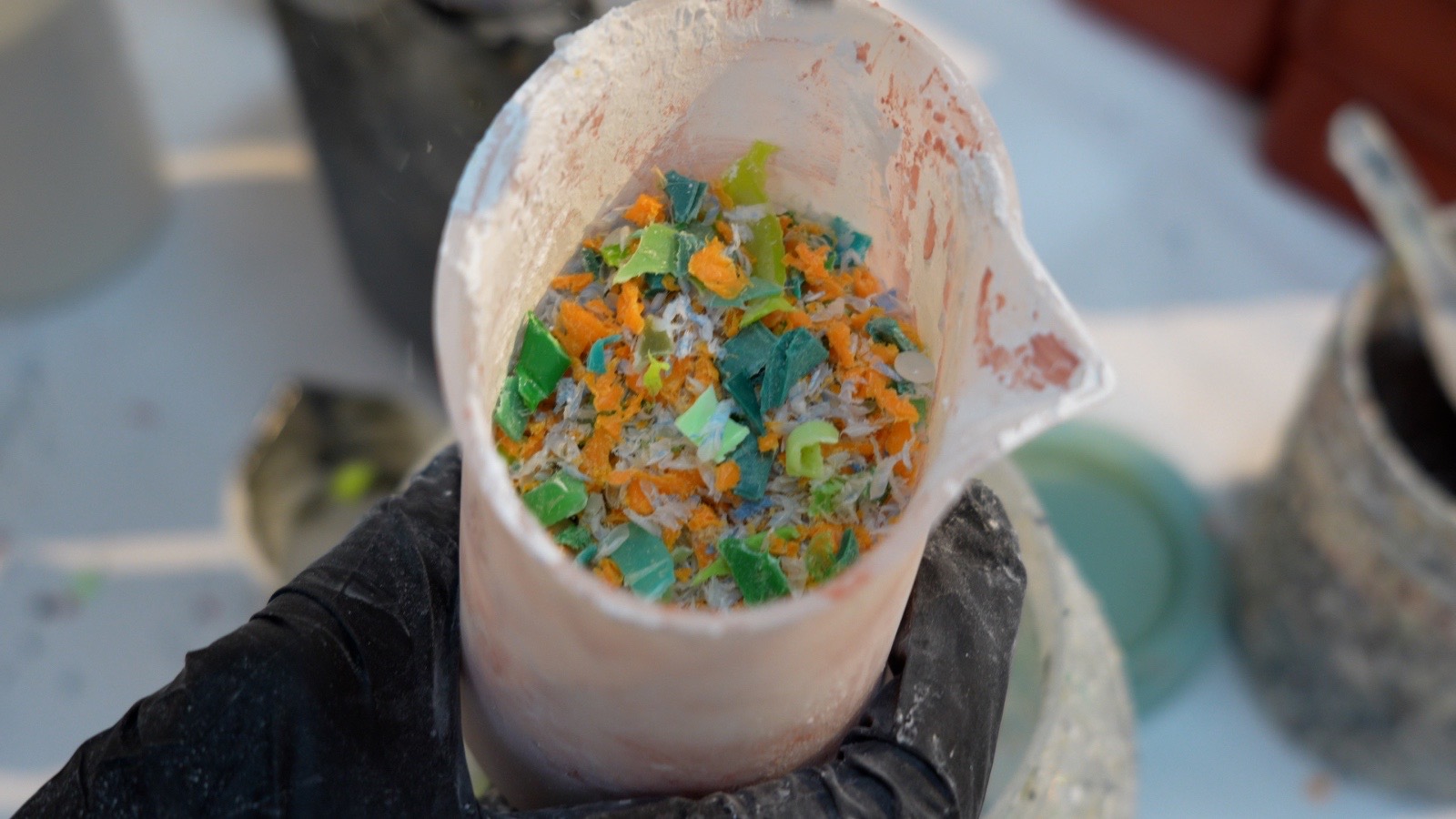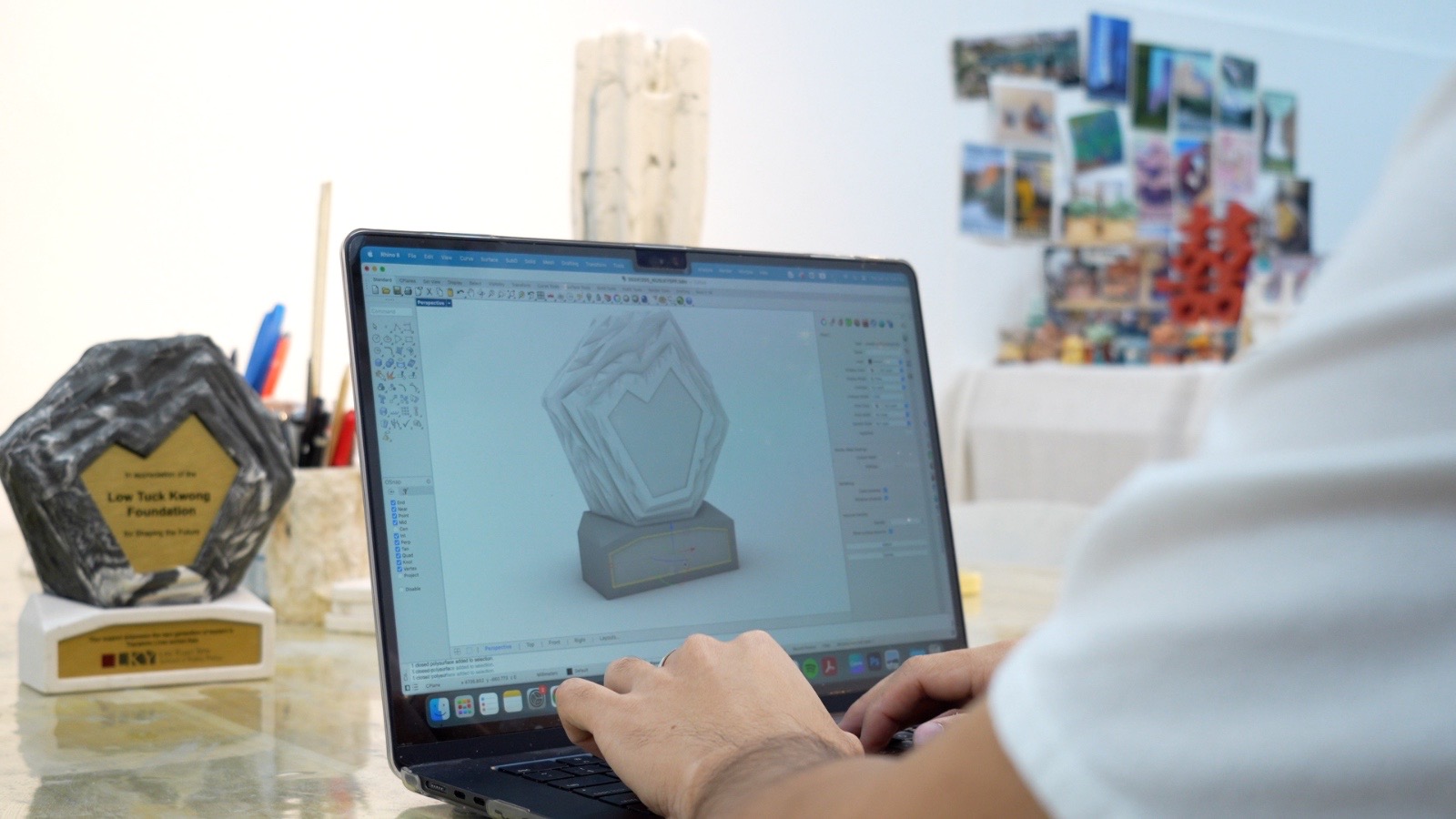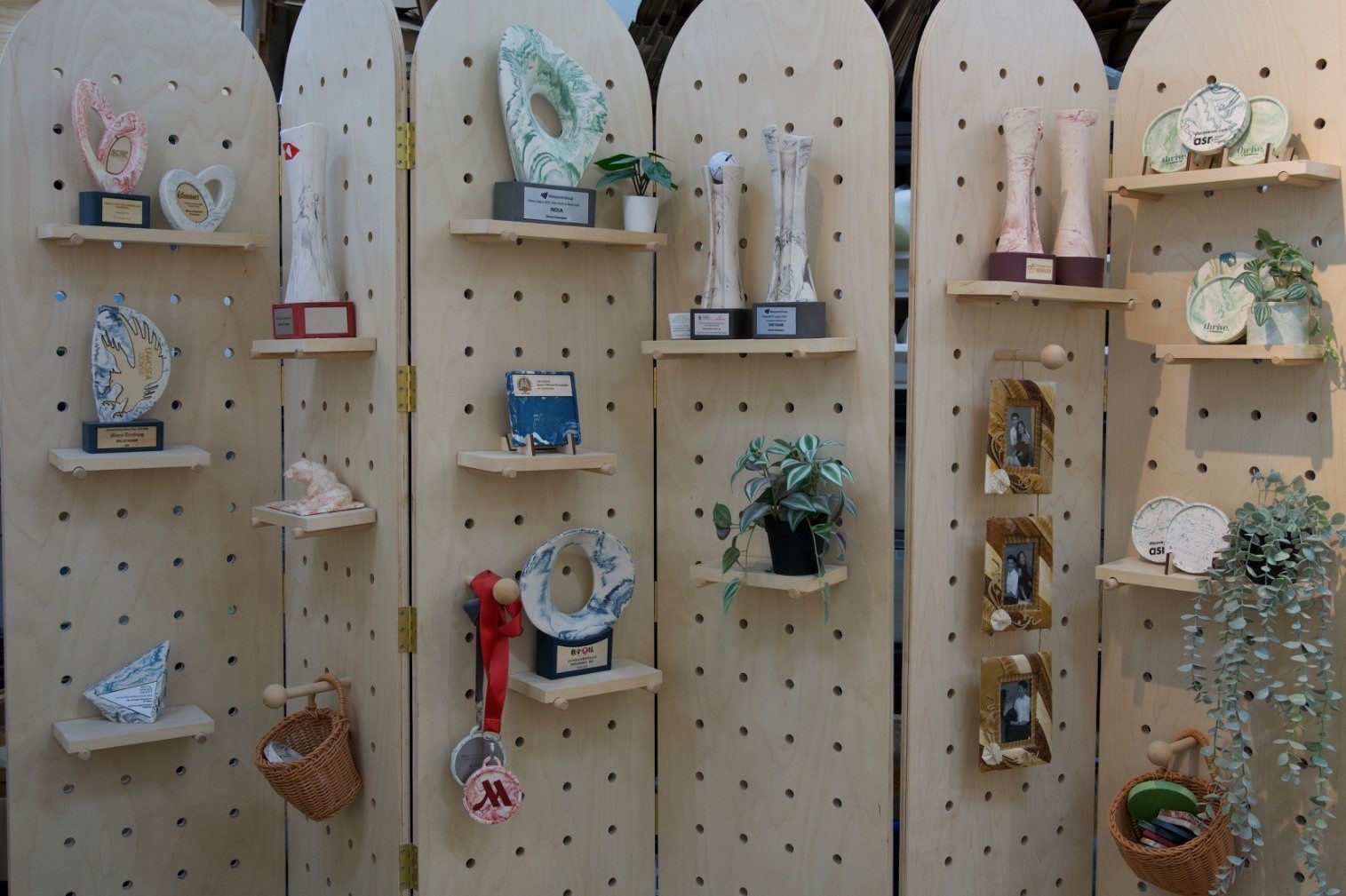In the heart of JTC’s Geylang East Industrial Estate, a small workshop hums with creativity and purpose. This is the home of Brambe, a lifestyle brand that was founded in 2021 by Bernie Ang and Amanda Tay.
Brambe's mission is clear: to craft eco-conscious products that blend artistry with environmental responsibility. For the entrepreneurial duo, the brand is more than just a business. “Brambe combines our interest in design and sustainability,” explains Tay, who holds a degree in environmental studies. Meanwhile, Ang brings his architectural background and design flair to the table.
“Our effort towards sustainability is a little more scaled down,” Ang adds. “We look at what we can do as individuals and see how we can implement that into our business.”
From collectible homewares to bespoke corporate trophies, each piece reflects the company’s aim to turn waste to treasure. “The word that comes to mind when I think of trash is ‘resource’,” observes Tay. “Before anything becomes trash, it was first a resource. There must be a way to innovate so that we can convert it back to a resource.”
Brambe's appeal lies in its crafting techniques. Each product is made using eco-friendly materials, with Jesmonite — a versatile composite — taking centre stage. But what truly sets Brambe apart is its commitment to upcycling — discarded plastics and used coffee grounds often find new life in their creations.

Collaboration is also at the heart of Brambe's ethos. The duo works closely with their partners to collect and process plastic waste, which are shredded into tiny beads and then mixed with Jesmonite to create their products. They have also partnered with a 3D printing startup founded by Ang's architecture juniors from the National University of Singapore, bringing their ideas to life in physical form.
But perhaps the most inspiring partnerships are those with the community. For example, Brambe works with the Society for the Physically Disabled (SPD), whose members assist with the post-production of the corporate gifts. This creates a win-win situation for both parties. "We hope to provide employment opportunities for the beneficiaries at SPD,” Ang adds.

Brambe sometimes holds glass bottle collection drives, with the bottles now used as part of a newly introduced formulation that allows them to upcycle up to 65% glass waste in every product. “We're hoping to expand this to a bigger scale so we can upcycle even more waste,” Ang shares. “With our own formulation, we can be very transparent with the material composition and footprint of our processes.”
Brambe’s works have caught the attention of major corporations. Since its founding, the duo has worked with the likes of DBS, KPMG, and Spotify to produce unique corporate gifts. “One thing that has helped is our design service,” Tay explains. “We can provide a personalised experience for our clients to create a product that is truly unique to their brand.” In many cases, these companies provide their own waste materials, which Brambe then upcycles into bespoke creations.

Despite the momentum they have gained, the duo remains grounded and aware of the challenges ahead. “There's an increasing awareness about upcycling and sustainability,” Tay observes, “but it doesn't always translate into action.” They encounter people with varying attitudes towards recycling, from enthusiasts eager to contribute their recyclables to those who find the process troublesome.
For small businesses aiming to make their mark, Ang and Tay offer this piece of advice: “Do not give up. When you’re a small business, there are a lot of challenges that you may face, and you may not have access to a lot of resources. People may not believe you at the start but take it as an opportunity to try new things. Explore your passion, and do it step by step.”
Brambe is an example of how creativity and eco-conscious practices can come together to create new business ideas. In a world grappling with environmental challenges, this small workshop in Geylang East is proving that waste can be transformed into opportunity.


